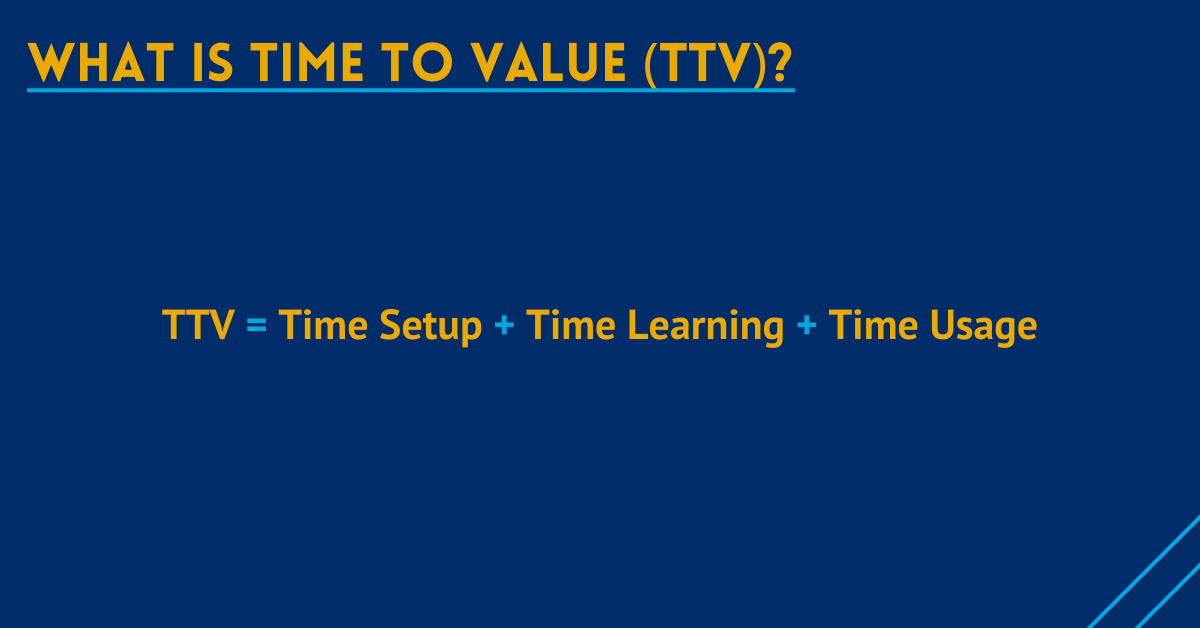Time to Value (TTV) is a business metric that measures the time it takes for a customer to realize the value of a product or service after purchasing or beginning to use it. The concept is particularly important in software, technology, and service-oriented industries, where demonstrating value quickly can lead to higher customer satisfaction, reduced churn, and better overall customer loyalty.
Here are key aspects of Time to Value:
-
Speed of Implementation: This involves how quickly a product or service can be set up and used by a customer. A shorter implementation time generally improves the time to value.
-
First Value Delivered: This is the initial point at which a customer derives value from the product or service. It could be something as simple as a successful software installation or as complex as achieving a significant business goal with the product.
-
Measurement: Time to value is often measured in days, weeks, or months, depending on the complexity of the product and the customer's goals. The measurement starts from the moment of purchase or initial engagement and ends when the customer first experiences significant value.
-
Importance: A shorter time to value is advantageous because it enhances customer satisfaction and improves the likelihood of renewals and expansions. Customers who see quick benefits are more likely to continue using a product and recommend it to others.
-
Optimization: Companies often strive to optimize their time to value by simplifying onboarding processes, improving user experiences, and providing effective training and support to ensure customers can quickly find value in their offerings.
Time to Value is a crucial metric for evaluating how effectively a company is delivering on its value proposition to its customers, and it plays a significant role in customer retention and satisfaction.

